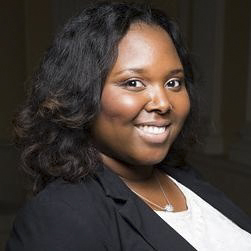Statement of Jocelyn Frye, President of the National Partnership for Women & Families WASHINGTON, D.C. – June 28, 2024 – Today, the Supreme Court upended sound, longstanding, legal precedent that has provided protections for everyday people for decades...

Abortion Bans Exacerbate The Black Maternal & Reproductive Health Crises
As a Black woman, AND mother, AND Deep South native, I know firsthand that Black maternal health and reproductive health are indivisible. The fall of Roe v. Wade amplified the and not or of the critical importance of fully realized reproductive justice, which embodies the decision of if, when, or how birthing people, especially Black and other communities of color, decide to parent. It is another reminder of the ongoing struggle for reproductive justice and the need to address the intersecting challenges Black women and people face to access quality reproductive care and how, often, Black women ourselves create the solutions needed to address what plagues our community.
Take, for instance, the terms ‘reproductive justice’ and ‘intersectionality’ – both were coined by Black women who combined their lived experience of marginalization within the feminist and civil rights movements to address the specific needs to be more equitable and inclusive for Black women and people. The intersectionality concept highlights a framework to understand and address the overlapping forms of discrimination and oppression individuals face based on intersecting identities, including race AND gender AND disability AND sexuality AND class, and more. Intersectionality recognizes that individuals hold multiple social identities and that these identities overlap and interact, resulting in complex forms of discrimination and oppression. When applied to Black maternal health and reproductive justice, intersectionality acknowledges that Black women experience a combination of racial, gender, and socioeconomic disparities that significantly impact their reproductive health outcomes.
The maternal health crisis has been decades in the making and continues to worsen. For Black women and birthing people especially, the disparities and inequities are persistent and staggering. Combined with high rates of maternal mortality and morbidity, the loss of access to abortion is yet another inequity birthing people face. Consider the ongoing trend of closing maternity units, which forces pregnant people to travel more than an hour away from their homes to seek healthcare. Expectant parents depend on these units to access vital healthcare, like perinatal care, delivery and labor support, postpartum services, and other reproductive care. Layered on to this is a heartbreaking trend of denied treatment or care for people experiencing miscarriages or ectopic pregnancies due to the fear providers have of violating abortion bans.
You don’t need to be an expert on the maternal health crisis to know this chilling fact: Black women and birthing people are three to four times more likely than White women to die from preventable pregnancy-related complications. That same person, with certainty, could tell you women and birthing people in the nation lost something invaluable when the Supreme Court eliminated a five-decade federal constitutional right to abortion and cleared the way for states to severely restrict or ban them entirely.
Advocates agree that while the fall of Roe v. Wade is a devastating blow, Roe itself was the floor, not the ceiling, for reproductive rights. This one-year marker allows us all to reflect on the broad implications of the decision beyond abortion rights. Reproductive justice, Black maternal health, and not or reproductive health are interconnected issues that demand our attention and action now.
Actions we can take include:
- Addressing racism, which contributes to the disparities faced by communities of color to access reproductive services.
- Advocating for policies that ensure comprehensive reproductive healthcare and equity for all and protect the right to decide if, when and how to parent. This includes legislation like:
- Black Maternal Health Momnibus Act
- Women’s Health Protection Act
- Equal Access to Abortion Coverage in Health Insurance Act
- Abortion Justice Act
We can remove the barriers to reproductive justice and the underlying causes of the maternal health crisis. Everyone should enjoy the freedom and dignity to determine their own reproductive futures.
This post is part of our blog series examining what has happened in the year since the Dobbs decision. Read more:

